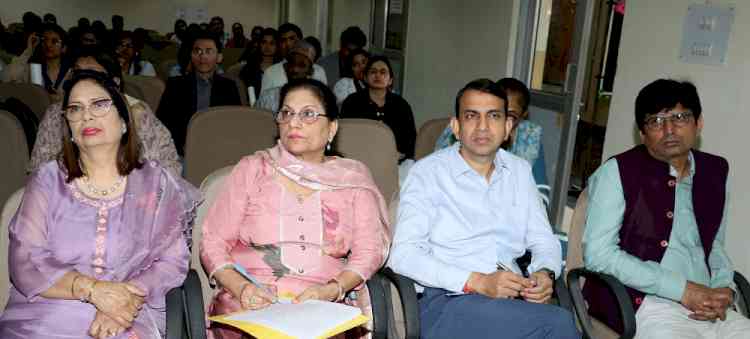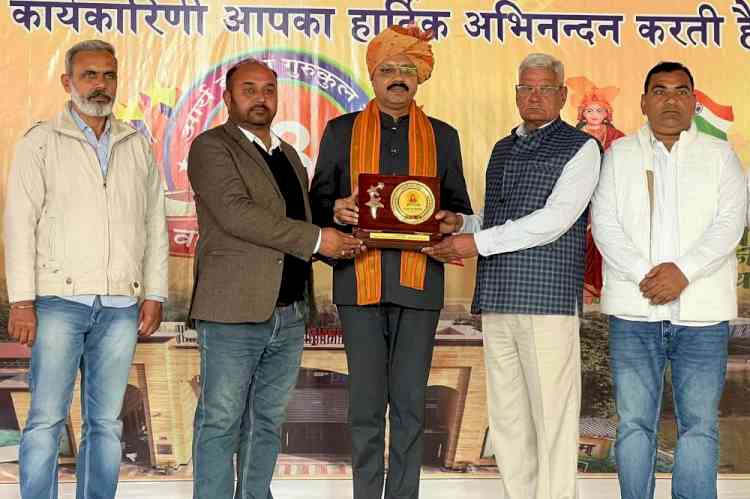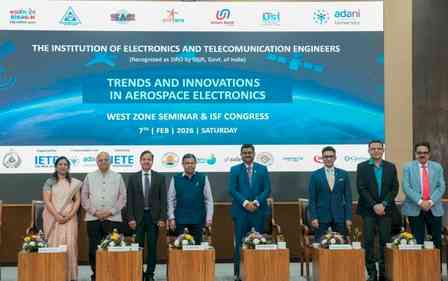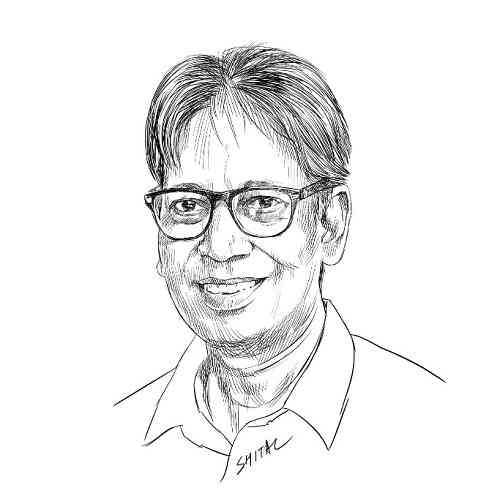Innovation, Collaboration and Research Excellence Mark Day Two of Chandigarh Science Congress (CHASCON 2025)
Scientific sessions, lectures, paper and oral presentations marked the second day of 18th Chandigarh Science Congress (CHASCON) at Panjab University (PU) here today. The second day witnessed enthusiastic participation from students, researchers and faculty members, as oral and poster presentations across various departments drew large audiences.

Chandigarh, November 7, 2025: Scientific sessions, lectures, paper and oral presentations marked the second day of 18th Chandigarh Science Congress (CHASCON) at Panjab University (PU) here today. The second day witnessed enthusiastic participation from students, researchers and faculty members, as oral and poster presentations across various departments drew large audiences.
Scientists, experts and academicians delivered lectures on life sciences, Pharmaceutical, Mathematical and computer, Chemical, Engineering, Basic medical sciences, Dental, in 8 different sections of Scientific sessions covering all the sciences, engineering and management departments on PU.
A series of invited lectures covering various facets of science and technology were organised at sectional levels. In the evening, oral and poster presentations marked the event. As many as 609 oral and poster presentations were made by research scholars, students and scientists belonging to the Chandigarh and adjoining states including Delhi, Uttar Pradesh and Rajasthan. Selected oral presentations in each section were also made by the delegates today.
The day began with a morning scientific session, young researchers presented their work during oral presentation sessions across departments, receiving valuable feedback from senior faculty. Afternoon was dedicated to poster presentations showcasing a wide range of scientific research in visual form.
Selected researchers shared their research journeys during the CHASCON–CRIKC Shodh Samvad, which took place in the Seminar Room, Department of Biotechnology, and was moderated by Prof. Naveen Gupta. The session encouraged dialogue among scientists, faculty, and students on regional collaboration and interdisciplinary research opportunities within CRIKC institutions.
Three winners of oral, poster and Shod Samvad for three UG/PG and Research categories were selected, which will be awarded during the valedictory function.
During the Technical Session on Research and Innovation Ecosystem in India, Padma Shri awardee Prof. Anil Kumar Gupta, founder of the Honey Bee Network and former Professor at IIM Ahmedabad, delivered the opening plenary lecture titled “Inclusive Innovation through Sustainable and Responsible Science.” Prof. Gupta urged students and researchers to blend scientific pursuit with entrepreneurship and social responsibility. He shared examples of grassroots innovation, including fiber made from water hyacinth used in fusion sarees and “Golden Feathers,” a startup transforming bird feathers into silk. He presented four models for translational research to address community problems, stressing ethics, accountability, affordability, and knowledge sharing. “Good ethics leads to more efficient research,” he said, adding that collaboration between sciences and social sciences is vital to bridge “missing links” in the research ecosystem. Concluding with a call for focus and commitment, he reminded, “A change not monitored is a change not desired.”
CHASCON also hosted Technical Session on Health and Medical Sciences and Plenary Lecture on Healthcare in the Era of Artificial Intelligence.
Addressing the CHASCON, Padma Shri awardee Prof. Digambar Behera, President of the National Academy of Medical Sciences and Director of Pulmonary Medicine at Fortis Hospital, Mohali, delivered a detailed lecture on “Exploring the Evolution and Impact of AI in Healthcare.” Prof. Behera outlined how Artificial Intelligence is revolutionising healthcare delivery worldwide, improving diagnostics, treatment planning, and operational efficiency in hospitals. He illustrated how AI applications are advancing drug discovery, cancer research, and surgical precision, achieving success rates as high as 94–100 percent. He noted that nearly four lakh patients suffer preventable harm annually in hospitals and emphasised AI’s potential to minimise such risks. He also discussed AI’s role in drug design and development, where it can cut costs by 50 percent and accelerate discovery timelines, calling it a transformative force in future healthcare systems.
During the Plenary Lecture on Genetics of Cardiomyopathies, Prof. Ajay Bahl, Professor of Cardiology at PGIMER, Chandigarh, discussed the advances in Next-Generation Sequencing (NGS) and the accompanying challenge of interpreting genetic data clinically. He emphasised confirmatory testing methods like Sanger sequencing for accurate variant classification, aiding timely diagnosis, preventive measures, and informed clinical management.



 City Air News
City Air News 










